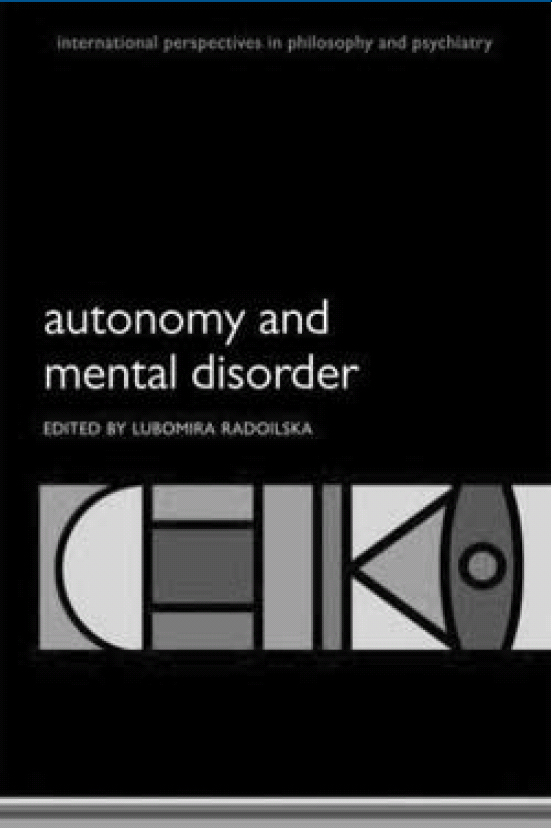
How autonomy and mental disorder relate – the topic of this book – is a good example of a question likely to provoke two minds: is it a puzzle that, as Wittgenstein would have said, is like a fly buzzing in a bottle which the philosopher should show out? Or is it a problem that takes us to frontiers of our understanding where we should be coming up with good new ideas (as Karl Popper would have argued)? This collection of philosophical essays edges overall towards recognising a need for new ideas about the relation between autonomy and mental disorder. The question is certainly one of the big issues in psychiatry. It is a major problem for mental health law.
Many of the papers in this book are fairly philosophically technical and psychiatrists are likely to want more psychiatric phenomenology or law. That said, I suspect that British Journal of Psychiatry readers will find them no harder going than many other papers in psychiatric research and will certainly find them relevant to practice.
Autonomy has been the big theme in moral and political philosophy since at least the Enlightenment and it is a substantial source of our identities. Ask why freedom of choice and self-determination are good in any liberal democracy and you are likely to elicit puzzlement: they just are. Cambridge philosopher Jane Heal in an interesting Wittgenstein-leaning essay remarks on this and points out that consensus lies not around any idea of what autonomy is (the Enlightenment did not give us this very clearly), but in our practice of valuing non-coercion.
Yet psychiatrists want to know when, and when not, it is legitimate to treat mental disorder coercively, and without an idea of autonomy that can help, other ideas will step in. The main idea in mental health culture currently is risk. But risk attracts its own serious questions. Do we distort probabilities of suicide and violence in the service of risk-based decision-making about treatment without consent? Does risk disable people with mental disorder from achieving equality before the law?
Autonomy has been weakly woven into mental health culture hitherto and one reason has to do with how the concepts of autonomy and mental disorder have been mapped to each other as opposites, with one unintelligible in terms of the other. In classical liberal thought the value of freedom from interference from others is taken as a fundamental right unless one is a child, a person who harms others or a person with mental disorder. Explicitly, or implicitly, autonomy and having a mental disorder have been conceptualised as mutually exclusive. This is what ‘unsound mind’ reflects – the basis of our traditional mental health laws. Once unsound of mind, liberty is a fragile right and the impulse to understand such a person's experience weak.
Cracks are starting to show with the unsound mind concept and with the politics of regarding autonomy and mental disorder as mutually exclusive. An emerging idea is what philosophers call the agency concept of autonomy and lawyers and psychiatrists know as decision-making capacity. If we take decision-making capacity seriously, then mental disorder and autonomy are not to be thought of as mutually exclusive and there will be new demands to understand their varying relationships.
Researchers and scholars of autonomy are starting to take an interest in mental disorder rather than treating it as a black box or as a thing to regard with extreme scepticism. That marks a significant intellectual change and this collection of essays, usefully structured by the editor and with a synthetic introduction, makes a very interesting contribution.





eLetters
No eLetters have been published for this article.